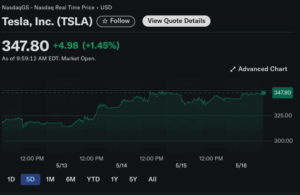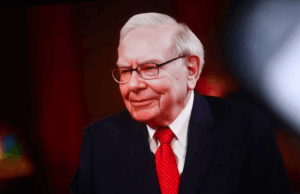May 16, 2025
During former U.S. President Donald Trump’s visit to the Middle East from May 13–16, 2025, U.S. tech leaders signed agreements worth $600 billion with Saudi Arabia, the UAE, and Qatar, focusing on AI chips, aviation, and communications infrastructure. Key deals include AI chip supply agreements to support Middle Eastern AI infrastructure development.
| Details | Information |
|---|---|
| Visit Dates | May 13–16, 2025 |
| Countries Involved | Saudi Arabia, UAE, Qatar |
| Total Agreement Value | $600 billion |
| Key Sectors | AI chips, aviation, communications |
| Saudi Chip Deal | Initial 18,000 NVIDIA Blackwell chips; hundreds of thousands over 5 years |
| UAE Chip Deal | Up to 500,000 advanced NVIDIA AI chips annually (~100,000 allocated to G42) |
Key Players and Roles
- NVIDIA: Primary supplier of 18,000 Blackwell chips to Saudi Arabia’s AI startup Humain, with plans to deliver hundreds of thousands of advanced AI chips over five years. Also agreed to supply the UAE with 500,000 chips annually, including ~100,000 for Abu Dhabi’s G42.
- AMD: Signed a $10 billion partnership with Humain for chip and software support (quantities undisclosed).
- Qualcomm: Signed a memorandum with Humain to develop AI data centers using its edge and data center solutions.
- G42: UAE’s AI flagship firm, allocated ~100,000 chips annually to lead its 5 GW AI campus project with U.S. partners.

Saudi Arabia
- NVIDIA announced the first batch of 18,000 Blackwell chips on May 13, 2025, to power Humain’s 500-megawatt data center.
- CEO Jensen Huang stated Humain will receive “hundreds of thousands of NVIDIA’s most advanced AI chips” over five years.
- AMD and Qualcomm partnerships focus on software and infrastructure, though chip volumes remain undisclosed.
United Arab Emirates
- A preliminary U.S.-UAE agreement allows annual imports of 500,000 NVIDIA AI chips starting in 2025.
- ~100,000 chips/year will go to G42, with the rest allocated to U.S. cloud providers’ data centers.
- This aligns with the UAE’s 5 GW AI campus project, led by G42 and U.S. collaborators.
Policy Shifts
The Trump administration revoked the Biden-era AI Proliferation Rules, which had restricted AI chip exports to Middle Eastern nations like Saudi Arabia and the UAE (classified as “Tier 2” countries). New policies include:
- A global ban on Huawei’s Ascend AI chips.
- Warnings against using U.S. AI chips to train Chinese AI models.
- Guidelines to safeguard supply chains from diversion tactics.
This shift reflects a strategy to “restrict rivals and rally allies”, prioritizing U.S. tech dominance in the Middle East.
Geopolitical and Security Concerns
- Security risks center on G42’s historical ties to Chinese firms (e.g., Huawei). Despite G42 severing Beijing links in 2024, U.S. intelligence warns of potential technology leakage.
- Agreements include “ironclad safeguards” to block unauthorized tech transfers.
- David Sacks, U.S. AI and Cryptocurrency Director, asserted there is “no proliferation risk” with Saudi Arabia and UAE as allies.
Economic and Investment Context
- Saudi Arabia pledged 600billioninU.S.investments∗∗,includinga∗∗600billioninU.S.investments∗∗,includinga∗∗20 billion AI data center and infrastructure projects.
- The UAE committed $1.4 trillion over 10 years to deepen tech ties.
- These investments align with Middle Eastern “Vision 2030” strategies to diversify economies through AI and advanced tech.
Progress and Market Impact
- As of May 16, 2025, Saudi Arabia’s initial chip deal is confirmed, with expansion plans underway. The UAE’s annual 500,000-chip agreement takes effect immediately.
- Positive market reactions lifted shares of NVIDIA, Tesla, and other tech firms. Analysts view the deals as catalysts for U.S. tech expansion in the region.
The $600 billion agreements underscore strategic U.S.-Middle East collaboration in AI infrastructure, with millions of AI chips slated for delivery over the next decade. While these deals bolster regional tech ambitions, ongoing debates over security risks and China’s shadow loom large. The Trump administration’s policy pivot aims to cement U.S. leadership in critical technologies while countering geopolitical rivals.


+ There are no comments
Add yours